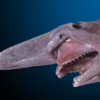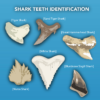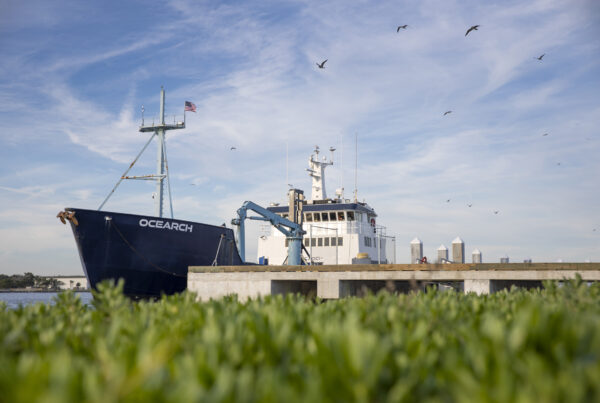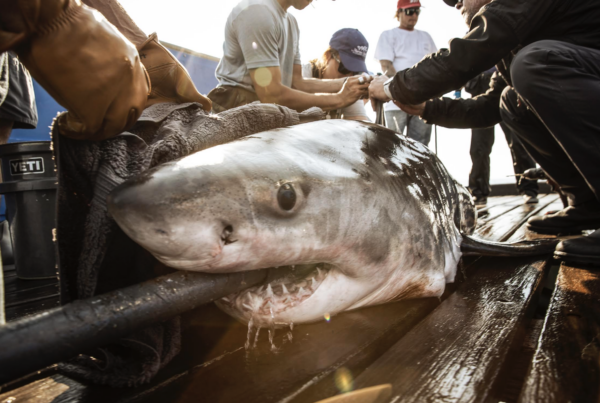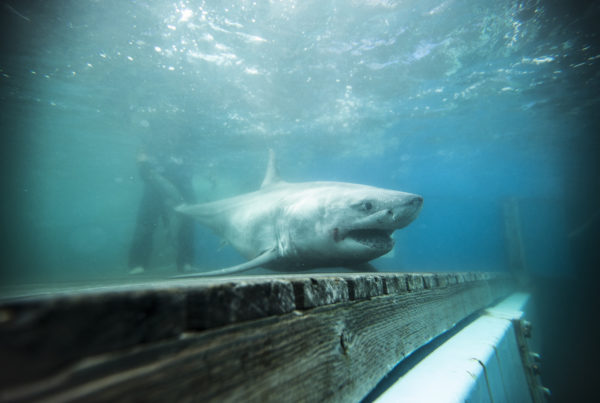OCEARCH’s Next Steps Against Combating Illegal Wildlife Trading
OCEARCH recently secured a $100,000 grant to combat illegal trafficking of shark fins and meat through the use of rapid, inexpensive DNA technology. Currently the customs agencies of five countries are using this “DNA Toolkit,” developed by Dr. Demian Chapman of Mote Marine Laboratory and Dr. Diego Cardeñosa of Florida International University. The OCEARCH grant will allow the DNA Toolkit program to expand into at least three more nations in Latin America later this year. Latin America is a major importer and consumer of shark meat.
How Does The DNA Toolkit Work?
The DNA Toolkit is a small, transportable device that uses similar biotechnology as COVID-19 PCR tests to identify the DNA of trafficked animals. When a product obtained from an illegal species enters the country, the border control agency can use the DNA Toolkit to test the product and identify the species, within 4 hours and for only about $1-8 per sample, depending on which test they use. These rapid PCR tests are designed to be deployed in areas with high levels of wildlife trafficking as a means of disrupting the illegal shark trade and supporting the prosecution of illegal wildlife importers.
What Role Does OCEARCH Play?
OCEARCH is providing the funding for the team to purchase PCR equipment and supplies such as thermal cyclers and reagents, provide transportation to appropriate agencies, administer a 4-day training workshop to ensure many users are confident in independent use, and offer remote user support after departing the country. The work is being conducted by OCEARCH collaborator Dr. Chapman and his staff, in cooperation with OCEARCH Chief Scientist Dr. Bob Hueter and the entire OCEARCH science team.
Why Does This Matter?
Illegal exploitation of threatened species is often driven by international trade, as a result nations have new obligations to detect and eliminate illegal wildlife imports . The DNA Toolkit has been used in Hong Kong to seize more than 70 tons of illegal shark fins entering their ports . These rapid, inexpensive tests have the potential to disrupt the inner workings of illegal wildlife trading, not only for sharks but for any species of illegal wildlife. For example, Hong Kong authorities have modified the shark PCR procedure to test for freshwater eels, which resulted in the first successful prosecution of eel smuggling in Hong Kong, a major center for illegal trade in many protected species.
What’s Next?
The DNA Toolkit program led by Drs. Chapman and Cardeñosa will travel to Brazil and Panama later this year for in-person training to teach border control agents how to effectively use the toolkit to combat illegal trade. The team will then provide remote support to ensure the program’s success and longevity. A third country in Latin America is scheduled to be selected next year.

DNA Portable Toolkit
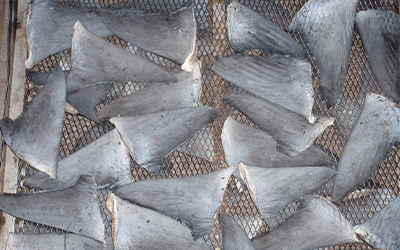
Shark Fins From An Illegal Wildlife Import
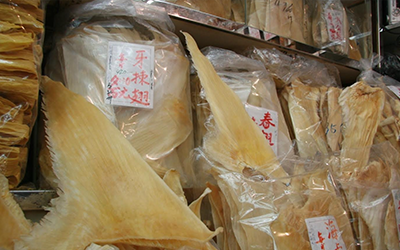
Shark Fins From An Illegal Wildlife Import Being Sold



